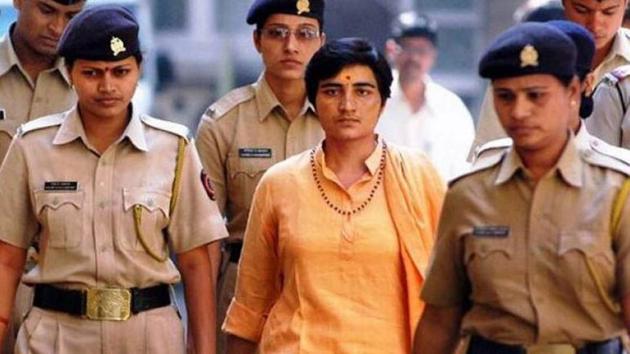Malegaon 2008 blast case: Bail pleas of Pragya Thakur, Shrikant Purohit likely to be heard today
Thakur and Purohit has challeneged the lower court order that had rejected their respective pleas
The Bombay high court is likely to pronounce its verdict on the appeals filed by 2008 Malegaon blasts accused Sadhvi Pragya Thakur, and Shrikant Purohit, challenging orders of a lower court that had rejected their respective bail pleas, on Tuesday.

The court had reserved its order in February this year, after conducting hearings on both pleas on almost a daily basis for about a month.
Thakur had challenged the lower court order rejecting her bail, arguing that the court had failed to take cognisance of the change in circumstances in her case considering that the National Investigating Agency (NIA) had declared in its chargesheet that it had not found any evidence against her and that prosecution against her be dropped.
NIA on its part submitted before the high court that it had “no objections” to Thakur’s plea, or to the court granting her bail. The Maharashtra anti-terrorism squad that had initially probed the case had raised its hands up, when asked by the court for its opinion, and said that the ball was now in the NIA’s court and it wasn’t the ATS’ prerogative anymore to support or oppose the plea.
However, the same NIA had opposed Purohit’s plea for bail and submitted that there existed adequate “prima facie evidence in the form of audio and video recordings, call detail records, and witness statements, to suggest Purohit played a major role in conspiring for, and executing the blasts.”
NIA’s counsel advocate Sandesh Patil had argued that both NIA’s own chargesheet and the one filed by the Maharashtra ATS established that Purohit had “participated in conspiracy meetings, given provocative speeches, agreed to get explosives for the act etc.”
NIA had also argued that it “did not want the ATS chargesheet completely obliterated,” and that the court must “consider both chargesheets.”
Purohit, on the other hand, had argued through the previous hearings that NIA had been “selective” in exonerating some accused persons and that the agency had made him a “scapegoat” in the case.
He had also claimed that the evidence against him was manufactured by the ATS, and that he had already spent eight years in custody as an undertrial.
The interveners in the case, the families of some of the victims of the blast, meanwhile, had argued that the pleas be denied for there exist ample evidence in the ATS’ chargesheet to establish that Thakur and Purohit were some of the main conspirators of the blasts that had killed eight persons and injured 80 others.





